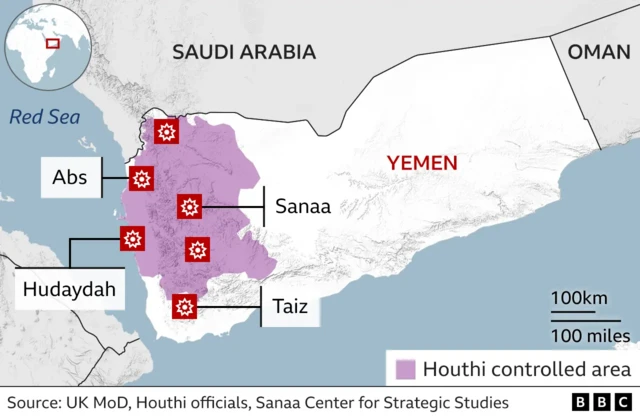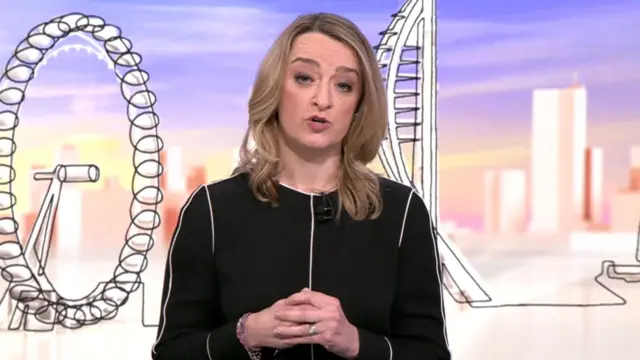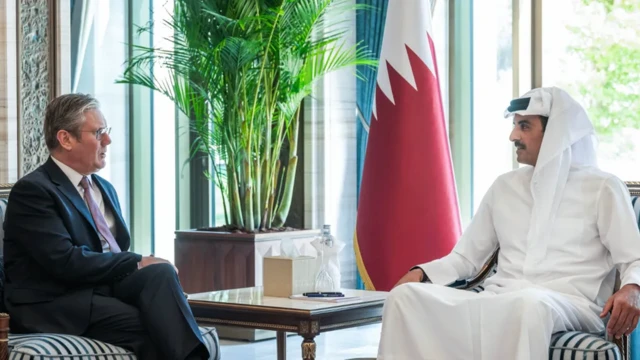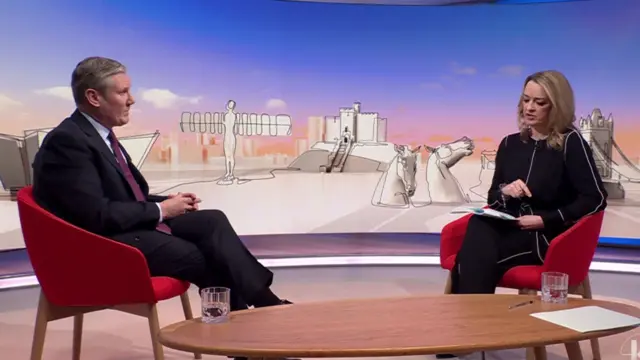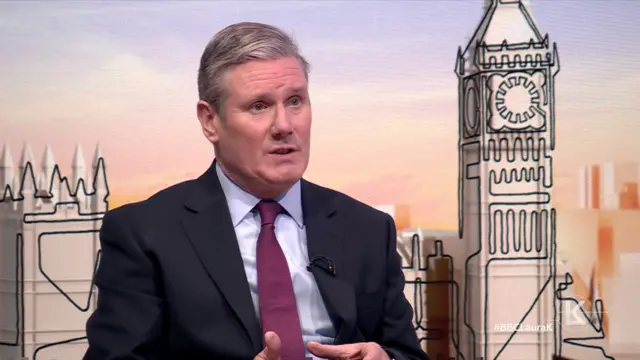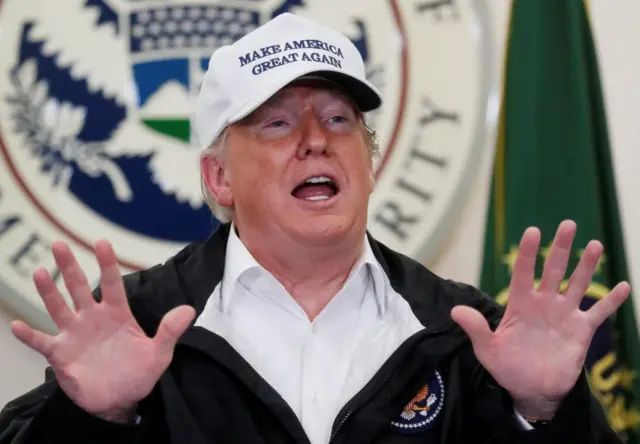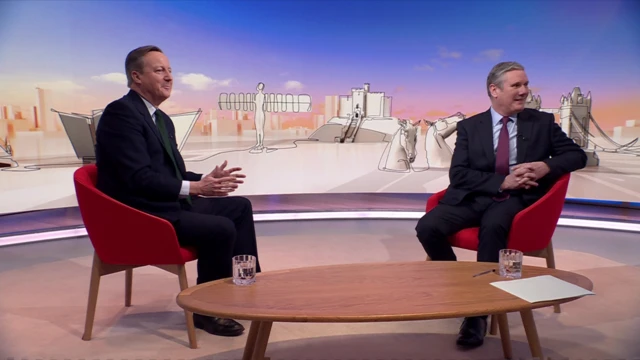It's goodbye from them - and goodbye from uspublished at 11:33 GMT 14 January 2024
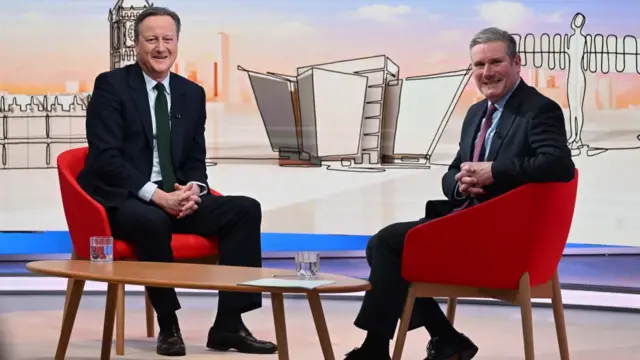
It was another busy morning on this week's edition of Sunday with Laura Kuenssberg.
A lot was covered, with David Cameron and Keir Starmer facing questions on military action in Yemen, reported deaths in the Channel and much more.
You can read our story here on the foreign secretary's comments on Yemen - and scroll through clips at the top of the page.
This page was brought to you by Owen Amos, Ali Abbas Ahmadi and Emily Atkinson.
Thanks for joining us.
